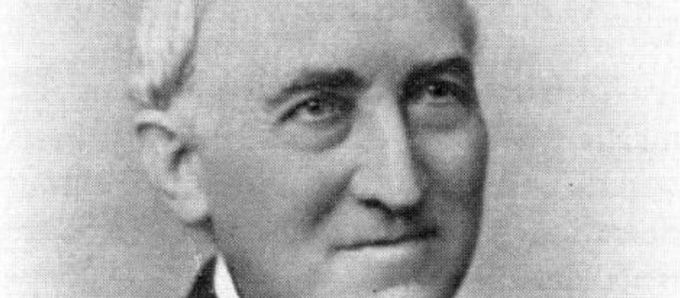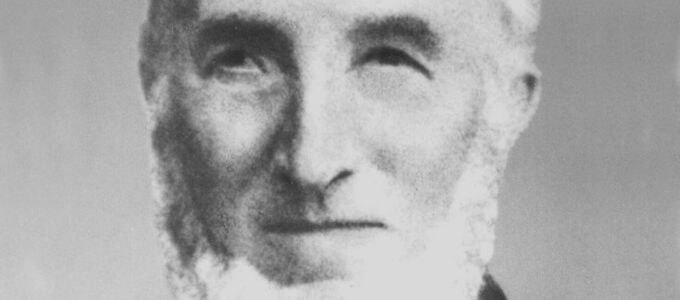
He is not as well-known as some other pioneers of the New Apostolic Church. Yet, Apostle Friedrich Wilhelm Menkhoff had great influence on the emerging church. He would have been 120 years old today.
Incense? Vestments? Liturgical singing of the congregation? Most of us, when we look at the simple and unadorned form of worship of our church services today, are not aware that this goes back to one particular man. Toward the end of the nineteenth century, the young emerging church had still oriented herself on her precursor, the Catholic Apostolic Church.
Reorganizing the structure
It was Bishop Menkhoff who managed to convince Apostle Friedrich Wilhelm Schwartz to do away with the traditional liturgical structure of the divine services and make the sermon the most important part of the divine services. He was hoping that the Apostolischen Zending that Apostle Schwartz was just establishing in the Calvinist-dominated Netherlands would find greater acceptance through this. Wilhelm Menkhoff was of the opinion that you had to differentiate between holy orders of the Church that were incontrovertible, and outer structures that were subject to changes.
Following this reform in the year 1870, it took nearly another two decades before these changes filtered through and were accepted and implemented in Germany, the motherland of the New Apostolic faith. In 1878, Wilhelm Menkhoff, by then he was an Apostle, took over the tribe” (which the working areas were referred to at the time) of Hamburg and introduced the new liturgy not only there but also in Berlin—often against fierce opposition.
An active pastor
Contrary to his fellow Apostles, Friedrich Wilhelm Menkhoff’s roots did not lie in the Catholic-Apostolic but in the Protestant faith. He was born in 1826 to a master blacksmith and his wife in Westphalia in Germany, and received an education at a Christian institution in Duisburg. When he had completed his schooling and qualified as a pastor, he was sent to the provinces of Groningen, Friesland, and Drenthe in the Netherlands to proclaim the gospel to Germans, who were working in the Netherlands as peat-cutters.
In 1860 he accepted the position of pastor in a free evangelical congregation in Ouderkerk/Amstel. In 1863 he came into contact with Apostle Schwartz and the Apostolischen Zending. After testing the genuineness of the faith for several years he had himself sealed. As an Evangelist, Friedrich Wilhelm Menkhoff returned to his home region in Germany. Although he was well known in the town of Quelle—he had often stepped in for the vacationing local pastor—Menkhoff lost the support of the Protestant missionary association on account of his having converted to the apostolic denomination.
Impulses for the doctrine
Meanwhile, a young man, whose mother had great difficulty in persuading him to attend church services, caught fire when he heard Menkhoff preach. His name was Hermann Niehaus, the later Chief Apostle. He managed to convince his parents to make their property available so that gatherings could be held there. This is how Evangelist Menkhoff was able to lay the foundation for the New Apostolic Church in North Rhine-Westphalia.
Apostle Menkhoff’s activity has left many traces, and not only where the liturgy is concerned. He also published a number of essays that had an influence on the doctrine. In 1867 he wrote an essay on the principles and creed of the Apostolic Congregation. Apostle Menkhoff also translated the book by Apostle Schwartz Het Boek voor onze Tijd (Book for our time) from Dutch into German.
Publisher of a Church magazine
Even Chief Apostle Bischoff still referred to Apostle Menkhoff’s writings. “Much of what Apostle Menkhoff wrote deserves to be snatched from the clutches of oblivion,” he wrote in a New Apostolic publication in 1952. That is why “I have decided to publish several of his essays. They are still significant for our time.”
Chief Apostle Bischoff was talking about articles from the Herold, a monthly circular published by Apostle Menkhoff starting in 1884 in Germany. It was the first official New Apostolic publication. Apostle Menkhoff stopped working on the publication at the beginning of 1895 on account of progressing blindness. Still that same year, Friedrich Wilhelm Menkhoff died, but his life and his works continue to have an effect to this day.












